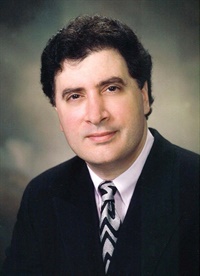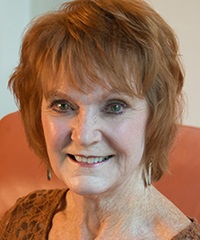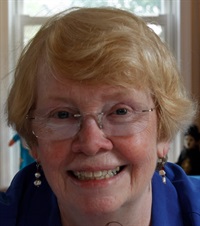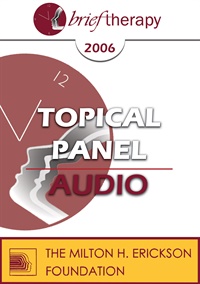BT06 Topical Panel 01 - Brief Therapy with Couples - Ellyn Bader, PhD; Frank Dattilio, PhD; Pat Love, EdD; Monica McGoldrick, MSW
- Average Rating:
- Not yet rated
- Topic Areas:
- Topical Panels | Brief Therapy | Couples Therapy
- Categories:
- Brief Therapy Conference | Brief Therapy Conference 2006 | Pioneers in Couples and Family Therapy
- Faculty:
- Ellyn Bader, PhD | Frank Dattilio, PhD, ABPP | Pat Love, EdD | Monica McGoldrick, PhD
- Duration:
- 58:08
- Format:
- Audio Only
- Original Program Date:
- Dec 08, 2006
- License:
- Never Expires.
Description
Description: This panel focuses on intensive, concentrated sessions addressing relationship challenges. Experts recommend flexible, targeted approaches that may include 10-hour workshops, two-hour initial meetings, and personalized strategies for handling complex issues like sexual abuse, cultural differences, and emotional disconnection. The goal is to provide effective, efficient therapeutic interventions that meet each couple's unique needs.
Educational Objectives:
- To describe the use of brief therapy techniques in specific clinical situations.
*Sessions may be edited for content and to preserve confidentiality*
Credits
Handouts
| Timestamped Transcript (892.2 KB) | 20 Pages | Available after Purchase |
| Ericksonian Learning Snapshot (275.4 KB) | 3 Pages | Available after Purchase |
Faculty

Ellyn Bader, PhD Related Seminars and Products
Ellyn Bader, PhD, is a founder and director of The Couples Institute in Menlo Park, California. As a clinical psychologist, workshop leader, author, and speaker, she is dedicated to helping couples create extraordinary relationships. Over the past 30 years she has trained therapists in couples therapy throughout the United States as well as Europe, Asia, South America, and Australia. She served as a Clinical Faculty in Stanford University School of Medicine for 8 years.

Frank Dattilio, PhD, ABPP Related Seminars and Products
FRANK DATTILIO, PhD, ABPP is a board certified clinical psychologist and marital and family therapist. He maintains a dual faculty position in the Department of Psychiatry at both Harvard Medical School and the University of Pennsylvania. Dr. Dattilio is one of the leading figures in the world on Cognitive-Behavioral Therapy. He is author of 230 professional publications, including 15 books. He also is the recipient of numerous state and national awards. His works have been translated into 25 languages and are used in 80 countries. His 2010 book is Family Therapy Homework Planner, co-authored with Louis J. Bevilacqua and Arthur E. Jongsma.

Pat Love, EdD Related Seminars and Products
Pat Love, Ed.D, is known for her warmth, humor, and practical, research-based wisdom. Her blog posts, YouTube clips, books, trainings, workshops, and online courses have made her a popular go-to relationship consultant. Her work has been featured on TV, in cyberspace, and popular magazines, but she’s also a distinguished professor, licensed marriage and family therapist, and long-standing clinical member and approved supervisor in American Association for Marriage and Family Therapy.

Monica McGoldrick, PhD Related Seminars and Products
Director of the Multicultural Family Institute in Highland Park, NJ. Professor of Clinical Psychiatry at the Robert Wood Johnson Medical School. Received the American Family Therapy Academy Award for Distinguished Contribution to Family Therapy and Practice. Known internationally for her contributions to family therapy, best-selling books (including You Can Go Home Again: Reconnecting With Your Family), as well as her unique gifts as a lecturer, has influenced an entire generation of students and therapists. Her latest book, Revisioning Family Therapy: Race, Culture and Gender in Clinical Practice, lays out the possibilities of revisioning family therapy for the culturally diverse 21st century.


